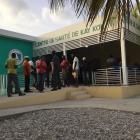ADVERTISEMENT
Environment
President Martelly at the Caribbean Climate Summit 2015
On Saturday, President Michel Martelly participated in Martinique, to the Caribbean Climate Summit 2015 and in his speech, he stated that this is an opportunity for his Government to clarify his position on the issue. The head of state stated that no one is immune to the disastrous consequences of climate change today. He sent a blanked blame to everyone as being both victims and perpetrators of the major climate shift noticed in Increasing temperatures, changing rainfall patterns, floods, prolonged droughts, and others
President Martelly urges the leaders to work together as only well-coordinated initiatives may give convincing results.
On Saturday, May 9, 2015, President Martelly accompanying the Ministers from the departments of Environment, Economy and Finance, Trade and Industry, participated in the Caribbean Climate Summit 2015, a one-day summit in Martinique's capital, Fort de France. Caribbean leaders from 13 countries had participated the summit, which was chaired by the French President Francois Hollande. It was a preparatory regional summit as the meeting gave participating leaders an opportunity to discuss a joint policy before the 21st session of the United Nations Climate Change Conference (COP21) scheduled to be held in Paris from 30 November to 15 December of this year. Dominican Prime Minister Roosevelt Skerrit, as the Chairman of the 9-member Organization of Eastern Caribbean States, has said that the summit has given the islands an opportunity to prepare so that its concerns receive due prominence in the Paris talks.
POET to supply Haiti with ethanol for cookstoves
Haiti is on its way to replace wood-burning stoves with clean, ethanol-fueled cook stoves through project Gaia.
Project Gaia is a Non-profit non-governmental U.S organization working to provide cheap eco-friendly alcohol based fuel on ethanol stoves in the developing countries. Most Haitians rely on charcoal and firewood to cook their daily meals. As a result, the nation is experiencing extreme deforestation over the years and an estimate reveals that it has been reduced to 2% of the earlier cover. Furthermore, the polluting fuels like wood, charcoal, dung, coal and petroleum have shortened the average lifespan of Haitians by 6.6 years due to the illness caused by household air pollution. In Haiti, POET in association with Project Gaia will replace wood-burning stoves with clean, ethanol-fueled cook stoves. Jeff Broin, the founder and Executive Chairman of POET has donated 12,000 gallons of ethanol of which 6,200 gallons have passed the Haitian customs in December 2014. Dometic, another partner of the project would supply locally made ethanol stoves and 'Novogaz' will be responsible for its distribution. "POET Bio refining - Jewell' will produce the needed ethanol.
Artibonite river in Haiti, 320 km long river
Here is a picture of the Artibonite river in Haiti, the largest water basin in Haiti.
Haiti's supply of hydroelectricity is produced, practically exclusively, by the Artibonite River. The powerful, liquid behemoth is also used for irrigation, and, at 320 kms, it is the longest river on the entire island of Hispaniola. It is estimated that over 70,000 families, living in the rural areas of Haiti, depend on the river, which irrigates some 30,000 hectares of land. This land is used to produce 80% of the country's rice. In December 2014, the government signed agreements with contractors aimed at protecting the river's shoreline, rehabilitating the hydraulic system, and protecting the banks.
Recho Pa'w, project to improve cooking funded by USAID
Here is a picture of a Recho Pa'w. This project was created to improve cooking in Haiti and funded by USAID.
The Recho Pa'w project, with a budget of nearly $9 million U.S. and funded by USAID to promote better cooking methods, was officially handed over to the Haitian population in a ceremony featuring representatives of USAID, LPG distributors and biomass stove manufacturers as well as the US Ambassador to Haiti, Pamela White. The objective of the project, which will be focused in the urban area, is to build the permanent groundwork for cost-efficient, clean cooking. The project aims to convert 300,000 families toward the use of propane and biomass stoves.
Haiti Plastic Recycling - Ramase Lajan
Here is a picture of the Haitian plastics recycling project, Ramase Lajan programme
The Haitian phrase "Ramase Lajan" literally means 'picking up money'. No other name could be more apt to describe this new opportunity creating program. Collections of tons of used plastic items, jugs, bottles overflowing the dumpsters or clogging the canals, and over 1,500 tons of plastic goods imported to Haiti, every month, have been translated into unique job opportunities by the 'Ramase Lajan' program. Plastics are seen as money rather than garbage. The program has created many local collection centers with fully equipped self-contained recycling storefront that sort the plastic grade and type-wise and send the sorted materials to the Haiti Recycling company in the capital city. In the past four years the program has created 26 centers and over 1,600 jobs, and around 80 million bottles have been collected to date.
Coffee Growers in Haiti and Climate Change
Here is a picture of Coffee coming from Haiti, A country that was at one point in history produced half the world's coffee.
Once coffee was the backbone of the Haitian economy. In 1788, it produced half of the world's coffee supply. But since 1950, Haitian coffee has been forgotten; it barely registers in global surveys for many reasons. The first blow to the Haitian coffee export came during the regime of the dictator Duvalier. His brutal dictatorship brought economic demise, including coffee export. It was further aggravated by the International Coffee Agreement in 1989 and the U.S. trade embargo in the mid 1990s. In recent times, the climate change, deforestation, the rise of many other global coffee powerhouses and diversification to other profitable corps have worsened the situation further, and many of the coffee growers have lost their skill to produce coffee. Today Haiti earns $1 million a year from coffee export-- just a fraction of the global trade.

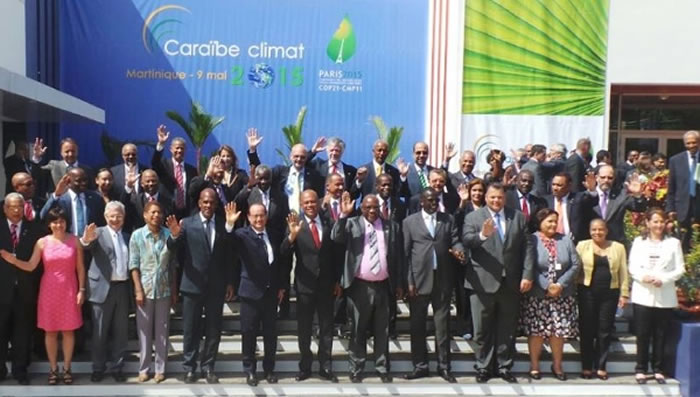

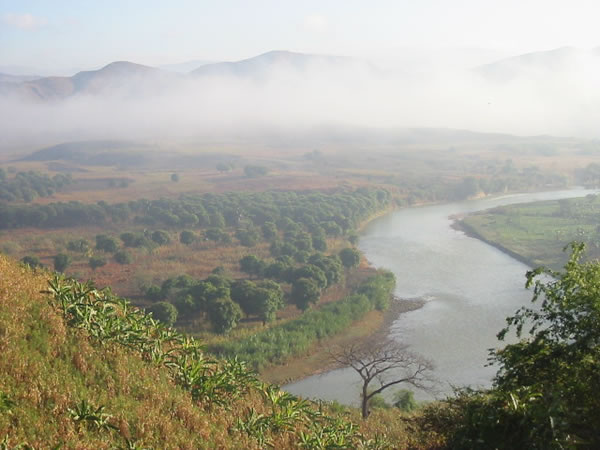
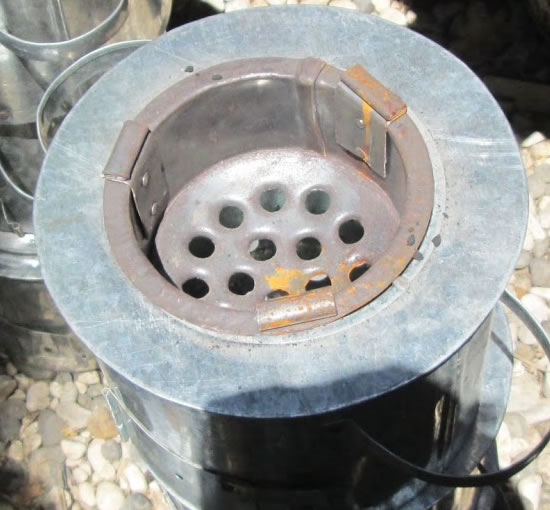
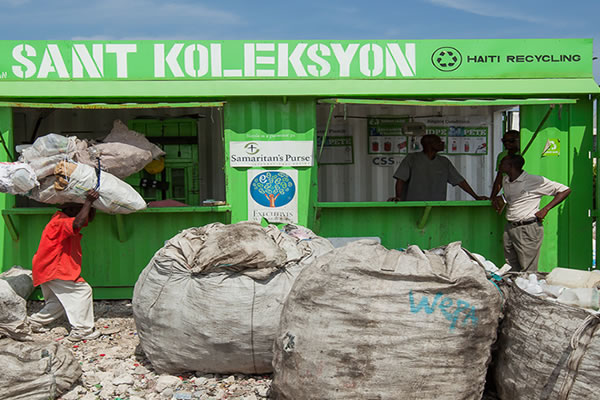
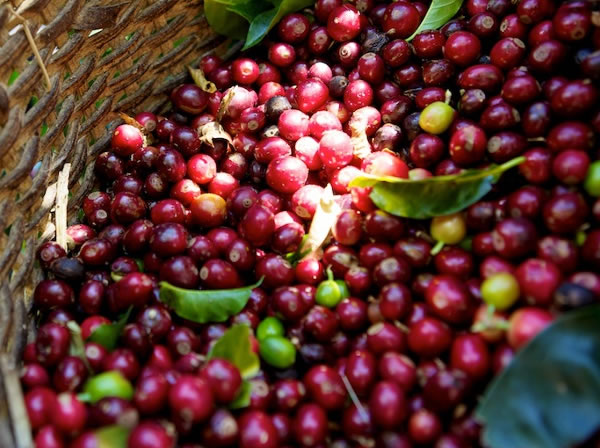
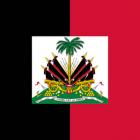 Haitian Flag Under Francois Duvalier changed in 1964 to black...
Haitian Flag Under Francois Duvalier changed in 1964 to black...  Nouveau College Bird in Port-au-Prince, Haiti
Nouveau College Bird in Port-au-Prince, Haiti  Should birthright citizenship be eliminated in the US?
Should birthright citizenship be eliminated in the US? 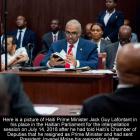 Jack Guy Lafontant resigns as Haiti Prime Minister
Jack Guy Lafontant resigns as Haiti Prime Minister  Meet Haitian-American professional baseball pitcher Touki...
Meet Haitian-American professional baseball pitcher Touki...  Jovenel Moïse nominated Jean Henry Céant as prime minister of...
Jovenel Moïse nominated Jean Henry Céant as prime minister of...  Port-au-Prince on fire over gas prices hike
Port-au-Prince on fire over gas prices hike  Pope Francis appointed Mgr. Launay Saturne Archbishop of...
Pope Francis appointed Mgr. Launay Saturne Archbishop of... 


